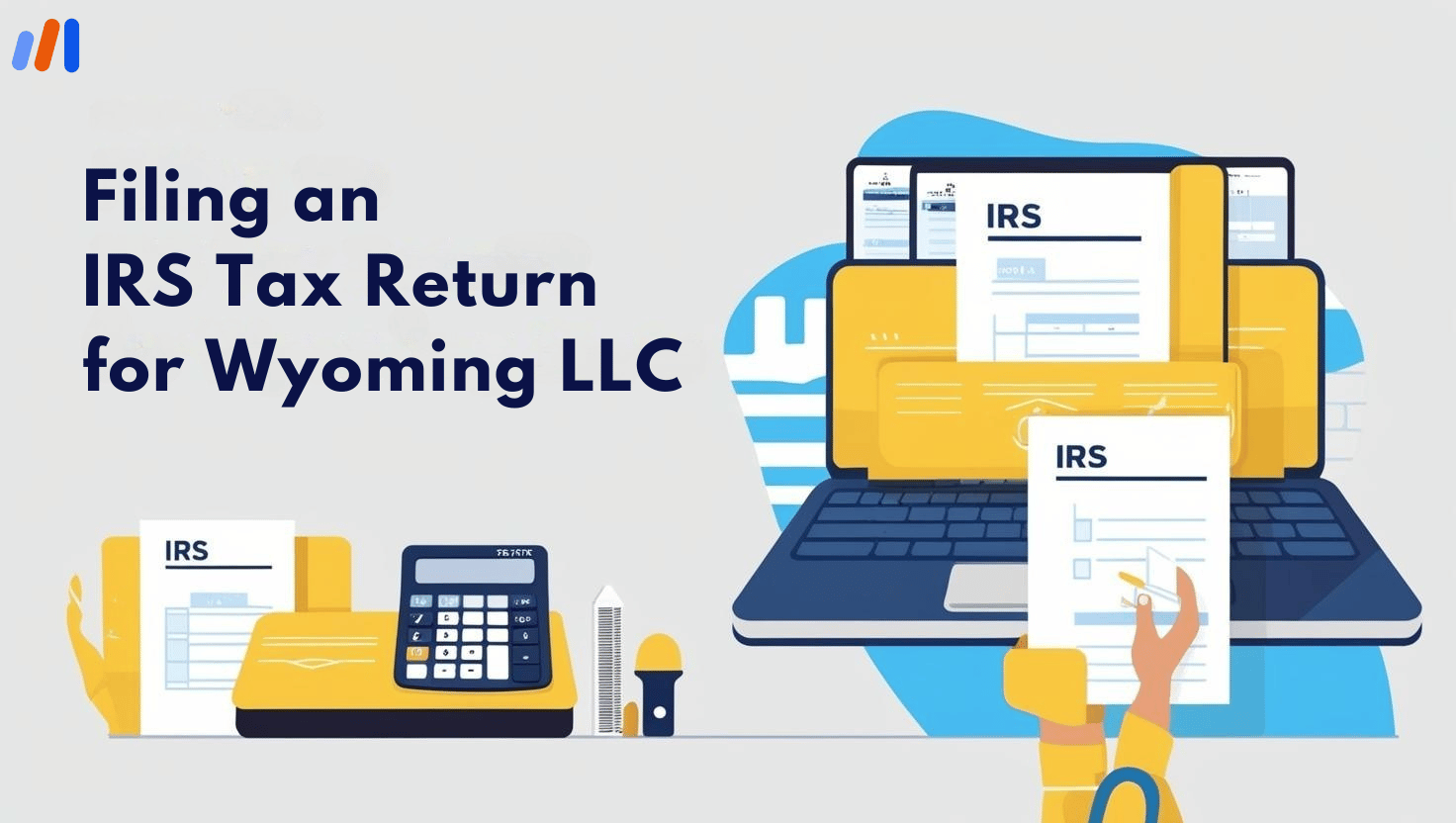If you are an inexperienced entrepreneur, then starting a business might feel like a Herculean task. This Dummies guide to Starting a Business attempts to provide you with a simple step-by-step direction to walk you through the process of starting and sustaining a business.
If you are looking forward to starting a side hustle, planning to upgrade from your job, or aiming to build the next big thing, then this guide provides you with a comprehensive understanding from an idea to a launch and everything in between.
The initial steps of starting a business certainly have a unique thrill, but it requires research, a well-organized blueprint, and an in-depth understanding of the particular industry. This guide will allow you to skip common hurdles so that you save time and achieve your entrepreneurial goals with confidence. Let’s explore more!
Basic Prerequisites for Starting a Business
In case you are searching for a Dummies Guide to Starting a Business, you require concise advice and someone to provide you with clear and step-by-step instructions. You may want to know that starting a business encompasses a lot more than just dreaming of a good idea. It involves planning, a legal framework, sourcing funds, marketing, and business operations. This guide will help you encapsulate all core areas of starting a business to make the entire process easily digestible so that it can be acted upon.
Prior to spending both time and money, one should be aware that entrepreneurship comes with risk and responsibility. It drives the need for determination, adaptability, as well as an unquenchable thirst for learning. The outcome—self-fulfillment, being financially self-sufficient, and having the liberty to innovate—makes it worth all the hustle.
What You Will Learn in This Guide
In this guide, you will learn how to:
- Assess your readiness to launch the business.
- Identify the most appropriate business model considering your current circumstances.
- Use market research to verify your business idea.
- Draft a winning business proposal.
- Secure investment for your startup.
- Recruit the right people for your venture.
- Promote the business using available resources.
- Conduct daily management for the business.
- Solve typical problems encountered in the early years of business.
- Strategically build and develop your business.
By implementing these strategies, you prepare yourself for success in the long run.
Reasons That Make Starting a Business Ideal for You
There is no common reason that applies to everyone, but here are some of the most cited motivations for starting a business from scratch:
-
Willingness to have control over their time and life: Most entrepreneurs actively search for the ability to manage their schedules and choices at work. Being self-employed enables you to set the clock of when and where to work, what to prioritize, and how the business operates.
-
Passion for a product or service: Finding a job in an area of interest to you, such as baking, coaching, consulting, or even crafting, can be an unimaginable motivator and also deeply fulfilling.
-
Financial goals: Creating a new source of income, replacing it with your existing salary, or building wealth over time — all of this is possible with owning a business since it has unlimited earning potential, unlike a fixed paycheck.
-
Opportunity to solve problems: Entrepreneurs usually notice gaps in the market or problems that need addressing, and in attempting to solve them, design products or services that may create immense demand and customer loyalty.
-
Flexibility: These days, most people seek a business as it offers freedom to strike a balance between hobbies and family alongside traditional workdays.
In case these reasons resonate with you, business ownership could be a great fit for you. Remember, however, that entrepreneurship comes with its own price to pay in dedication, hard work, and dealing with failure.
Self-Assessment: Are You Ready to Take Charge?
Having complete authority over your time and decisions can be really appealing, but may not suit everyone. These self-assessment questions can help you decide if you are ready to take the leap:
-
Do you cope well with uncertainty? While finances like cash flow, sales, and unpredictable expenses might be a norm for a business owner who needs good coping skills, many find planning to be their stronghold. If you’re able to rely upon ambiguity, you’re all set.
-
Do you exhibit a high degree of self-discipline and motivation? Your success relies solely on your ability to remain focused and self-sufficient, work toward meeting deadlines, and push forward without the aid of a supervisor or manager.
-
Are you capable of managing finances, keeping cash flow in mind? This can be one of the greatest difficulties for newer businesses. You require budgeting practices, precise spending tracking, and planning for slower periods.
-
Are you continuously willing to learn? Customers evolve as markets do, technology improvements are indisputable, and preferences progressively shift. It is essential to remain curious and adaptable.
-
Do you constructively manage stress and failures? Rejection is a part of being criticized, failing, and an everyday reality for an entrepreneur. This is what helps successful business owners push ahead—remaining resilient.
You have the potential; most likely, answering all listed questions positively convinces you of sorts, claiming the self-employment mindset for you, and fuels congratulations as you see success as an entrepreneur. Equipped with uncertainties, consider commencing small with mentorship as a confidence booster.
How to Begin With Starting Your Own Business: Involve Claiming Self-Employment
An initial stage, defining where to focus attention, revolves around selecting the most appropriate business model. Described precisely, a business model outlines methods through which your organization captures value, generates income, and remains profitable.
Here is a list covering the greatest few focal points around business models during the initial stages, focusing on self-employment:
Sole Proprietorship
- Pros: Cheap initial outlays, simplified setup per individual control claim, uncomplicated tax obligations.
- Cons: Unlimited individual liability, harder to obtain funding, limited reputation.
- Best for: Freelance professionals, small service enterprises, consultants.
Limited Liability Company (LLC)
- Pros: Protects personal assets from business debts, flexible tax options, and controlled management.
- Cons: Some additional paperwork and fees compared to sole proprietorships.
- Best for: Medium businesses that desire protection from personal liability but want to avoid strict corporate governance.
Partnership
- Pros: Shares the burden of responsibilities, utilizes diverse expertise and resources, simple formation.
- Cons: Unlimited joint liability unless a limited partnership, conflict risks.
- Best for: Family businesses or those started with reliable partners.
Corporation
- Pros: Excellent liability protection, raise money by issuing stocks, and tax incentive opportunities.
- Cons: Maintenance and setup can be complex, double taxation for C corps.
- Best for: Established businesses planning to invite investment or go public.
E-Commerce Store
- Pros: Expandable, limited overhead costs, and reaches a global audience.
- Cons: Highly competitive, requires a strong marketing and logistics background.
- Best for: Retail merchants, sellers associated with dropshipping, creators of handmade goods.
Service-Based Business
- Pros: Minimal upfront expenditures, relies on your expertise.
- Cons: Growth can be difficult without employing more staff.
- Best for: Freelancers, coaches, consultants, and repair technicians.
Consider exploring various business models to develop effective strategies regarding financing, marketing, and operations. Consider the pros and cons that best coincide with your goals and your approach to work.
From Idea to Opportunity: Generating and Validating Business Concepts
Planning a business starts with brainstorming a unique idea, but this is only the first of many steps on the long journey that lies ahead. To turn an idea into an actionable opportunity, several steps need to be taken, including conducting thorough market research.
1. Market Research
Identifying the gaps in the market that have yet to be explored is crucial. Getting insights on current and potential customer needs, preferences, and pain points is equally important. Gathering this information through surveys, online research, and interviews will help you understand how best to meet your target audience’s demands.
2. Competitor Analysis
Another essential step is observing and identifying competitors offering similar products and services. Dig deep into analyzing their key strengths and weaknesses, and find a way to outperform your competitors. Paying attention to these details will allow you to carve out a unique position for your business.
3. Customer Feedback
At this stage, you should have a clearer picture of the existing gaps. It is time to talk to your potential customers and canvass their opinions regarding your vision. Collecting insights directly from targeted customers will allow you to know whether the idea works or needs improvement.
4. Minimum Viable Product (MVP)
Creating a new item from scratch that has never been seen before can take up a lot of resources. Your best bet would be to create a simplified version of the good and show it to a test audience. By rolling out an MVP, time and funds can be saved as you will determine the level of interest before a full launch.
5. Pilot Programs and Beta Testing
Another great way to further optimize an MVP is the use of beta testing and pilot programs. You will be able to gather more accurate data and testimonials by providing limited access to the product and receiving feedback in real-time. The combination of both techniques allows you to adjust the offering to the customer’s needs and change it based on performance.
One of the smartest moves you can make is validating your business concept. It mitigates risk while increasing trust and interest from potential investors or partners.
Business Planning for Dummies: Creating a Powerful Plan
A business plan, which may seem complicated, is one of the most beneficial tools, highlighting details on the expected vision and the methods to achieve it. It acts like a road map for success, setting clear milestones and anticipating risks.
1. Executive Summary
Write a brief synopsis explaining the nature of your business, your mission, the market problem your product solves, and the key advantages you have.
2. Company Description
Go in-depth describing what your company does, the industry it operates in, and the markets it will serve. Include the structure of the business, ownership, and the team behind it.
3. Market Analysis
Provide comprehensive insights about the market landscape, target customer profiles, competition, and industry trends. Use the research from the previous section.
4. Organization and Management
Detail the organizational structure, the team, roles, responsibilities, and qualifications of each team member.
5. Service or Product Line
Describe the product or service offered, the life cycle of your product, intellectual property rights, and research and development activities.
6. Marketing and Sales Strategies
Discuss how you intend to attract customers, pricing models, sales processes, and promotional tactics.
7. Funding Request
If seeking financing, include the amount needed, future funding requirements, and proposed use of funds.
8. Financial Projections
Provide financial forecasts such as income statements, cash flow statements, and balance sheets for the next 3-5 years.
9. Appendix
Include supporting documents like resumes, permits, legal documents, and other relevant materials.
This document will also be a key point of reference for stakeholders and help you stay on course as your business grows.
Funding Your Business: Options and Best Practices
Finding financial resources can be challenging. These are the most common funding options available to startups:
- Personal Savings: The simplest source with no strings attached.
- Family and Friends: Often willing to invest with trust, but ensure clear terms.
- Angel Investors: Wealthy individuals offering capital for equity or convertible debt.
- Venture Capitalists: Professional groups investing large sums for significant equity.
- Bank Loans: Traditional lending requires solid credit and collateral.
- Crowdfunding: Raising funds from many individuals via online platforms.
- Government Grants and Programs: Non-repayable funds for specific industries or demographics.
- Business Credit Cards: Useful for short-term expenses, but be wary of interest rates.
Choose wisely by assessing the costs, benefits, and obligations of each option.
Marketing Your Business on a Budget
Marketing your business effectively can be done without breaking the bank. Here are some cost-efficient ideas:
- Build a Website: Your digital storefront.
- Leverage Social Media: Connect with customers and build a community.
- Content Marketing: Blogs, videos, and newsletters to educate and engage.
- Email Marketing: Personalized messages and promotions to loyal customers.
- Networking: Attend events and join local business groups.
- Referral Programs: Encourage word-of-mouth promotion.
- Local Advertising: Flyers, posters, or partnerships with other local businesses.
Monitor what works, keep testing, and optimize.
Managing Your Business Day-to-Day
Once the business is up and running, operational tasks will keep you busy. Focus on:
- Customer Service: Exceptional service builds loyalty.
- Inventory and Supply Chain: Keep stock optimized and suppliers reliable.
- Bookkeeping: Accurate records for financial health and taxes.
- Compliance: Stay current on licenses, permits, and regulations.
- Human Resources: Hiring, training, and managing employees.
- Technology: Use software tools for efficiency and scalability.
- Performance Tracking: Use KPIs to measure progress and adjust.
Being organized and consistent is key to sustainability.
Common Challenges for New Entrepreneurs and How to Overcome Them
- Cash Flow Issues: Monitor closely, plan expenses, and keep reserves.
- Finding Customers: Constantly market, engage, and improve your offer.
- Time Management: Prioritize tasks and delegate when possible.
- Legal and Regulatory Compliance: Seek expert advice and keep up to date.
- Stress and Burnout: Maintain work-life balance and seek support.
Accept challenges as opportunities to learn and adapt.
Final Thoughts
Starting a business is a fulfilling and rewarding journey, but it requires preparation, persistence, and learning. This Dummies Guide to Starting a Business serves as a helpful roadmap, but every entrepreneur’s path is unique.
Stay focused on your vision, leverage resources like mentorship and professional services, and embrace growth with enthusiasm.
File Your LLC Today
25$ off with a coupon
Lock in EasyFiling's transparent rates and get lifetime compliance support at no extra cost.
Get Started Now








